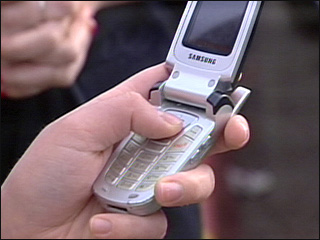The overwhelming proliferation of Instant Messaging (IM), text messages, and Twitter has long placed linguists on alert. The seamless incorporation of these media into everyday life and communication is astounding. From 2001 to 2002, text messages leapt from 30 million sent to nearly 1 billion. Records also show that in March 2008, over 3 million Twitter messages (tweets) were posted daily. The world has certainly “shrunk,” but has speech quality diminished as well?
To me, it seems rather natural to think that the flurry of emoticons, blistered thumbs, and 140 character correspondences would weaken proper English. But amidst my research I discovered that there are many professionals who feel that these conversational tools are not spoiling syntax. Rather, they recommend that this generation’s newly integrated dialect should be considered enhancements of the English language as we’ve known it.

photo by [email protected]
Professor David Crystal, who has written at length on language and the Internet, responded to the Instant Messaging phenomena: “I see a brand new variety of language evolving, invented really by young people… within five years! It’s extraordinary.” He believes that acronyms like LOL (laughing out loud) and BRB (be right back) “extend the range of the language, the expressiveness… the richness of the language.”
Supporting Crystal is a 2007 study performed at the University of Toronto by Professor Tagliamonte. The review analyzed 71 Instant Messenger conversations from participants ranging 15 to 20 years old. The results illustrated a fusion of different language features: written and spoken, formal and informal. “It’s showing a real creativity and a firm grasp of the linguistic resources available to them,” said Derek Denis, a co-author of the study.
What do you think? Do your experiences support these findings, or do you think technology has jeopardized speech? And what does this mean for the public speaker?





May 29th, 2009 at 12:40 pm
>>What do you think?<<
Or… wut du u thnk
As a moderator on the Google Search forum at WebmasterWorld, I see that IM certainly appears to be affecting spelling, capitalization, and punctuation… and not necessarily for the better.
I’d like to think texting is enhancing the richness of the language, or will eventually do so. Most every other development in communication has. Shakespeare appeared at a time of great transition in the development of English. I don’t know that we’ll have a similar golden age, but we might lose our prohibition against split infinitives.
It’s the decrease in attention spans I worry about more than the actual changes in syntax.
May 29th, 2009 at 12:44 pm
As a college adjunct professor and mentor, I see a decline in the ability to write and speak professionally. I don’t believe this is necessarily in conflict the above conclusion.
Being able to communicate complex ideas clearly is a different thing that in the moment texting. We are concerned enough about this we are studying it this summer.
Thanks!
July 14th, 2009 at 5:59 am
Pretty cool post. I just stumbled upon your blog and wanted to say
that I have really liked reading your blog posts. Anyway
I’ll be subscribing to your blog and I hope you post again soon!